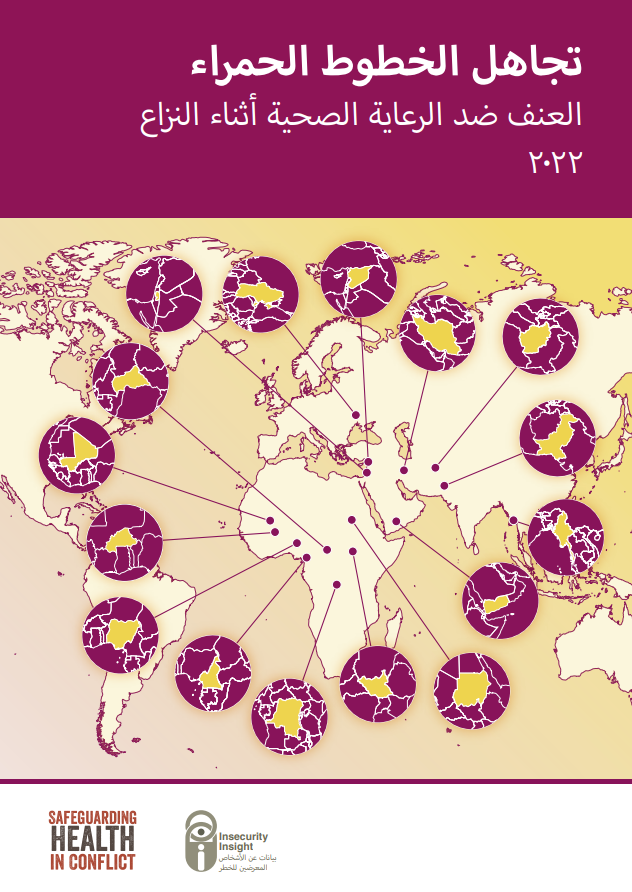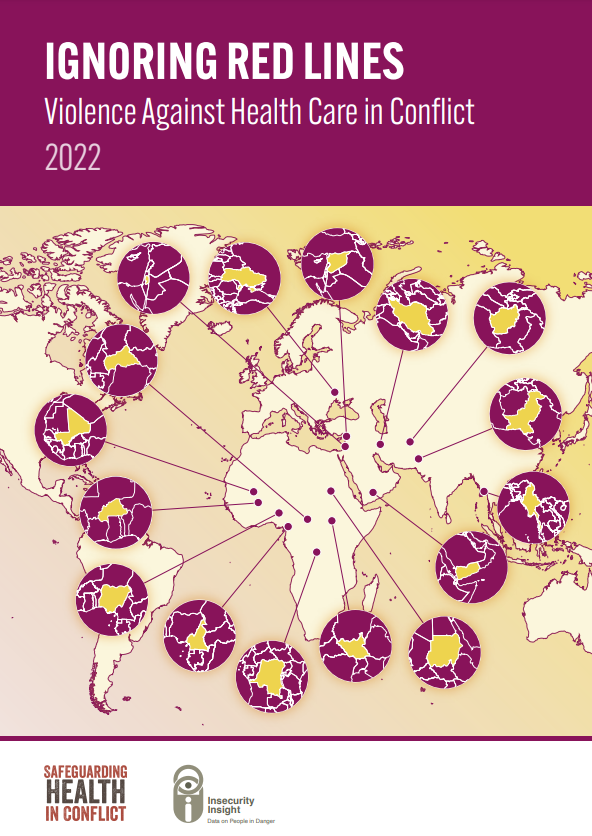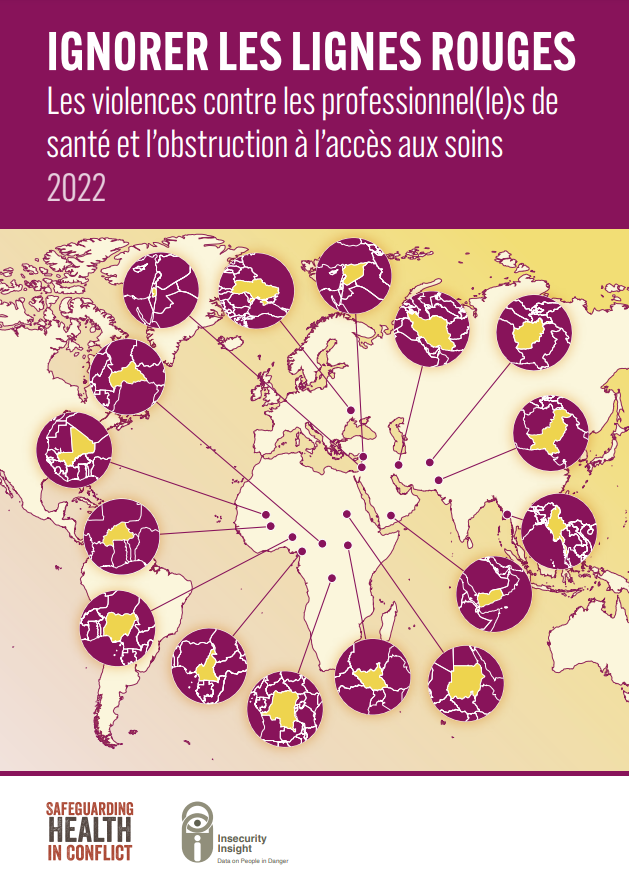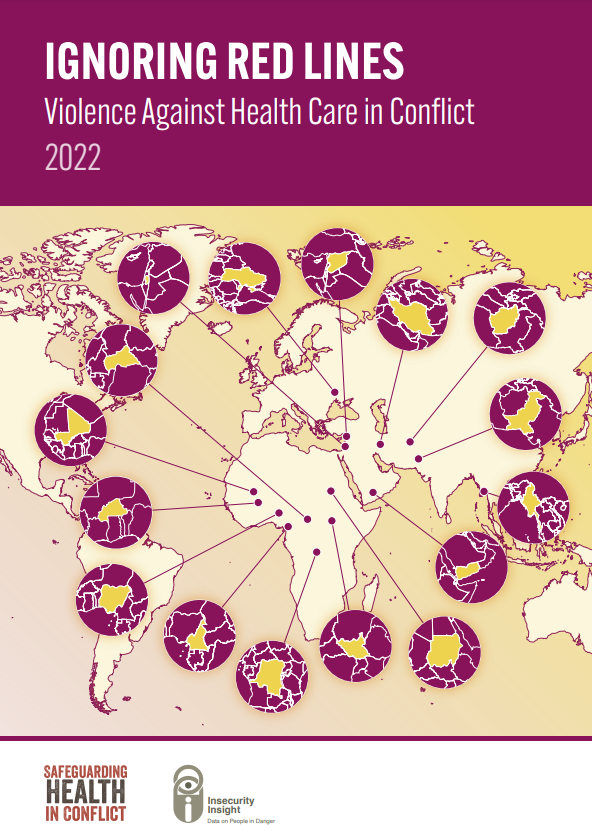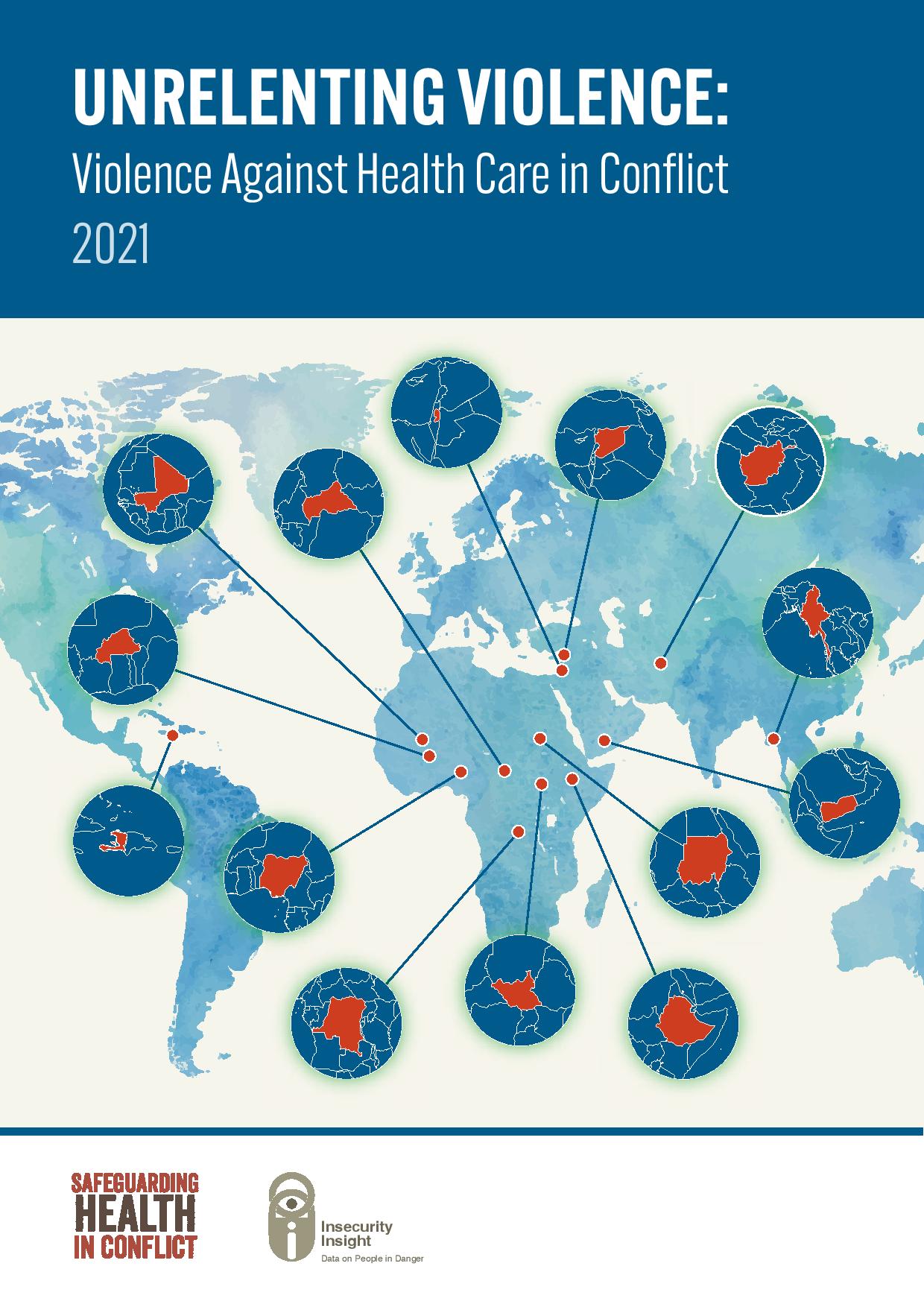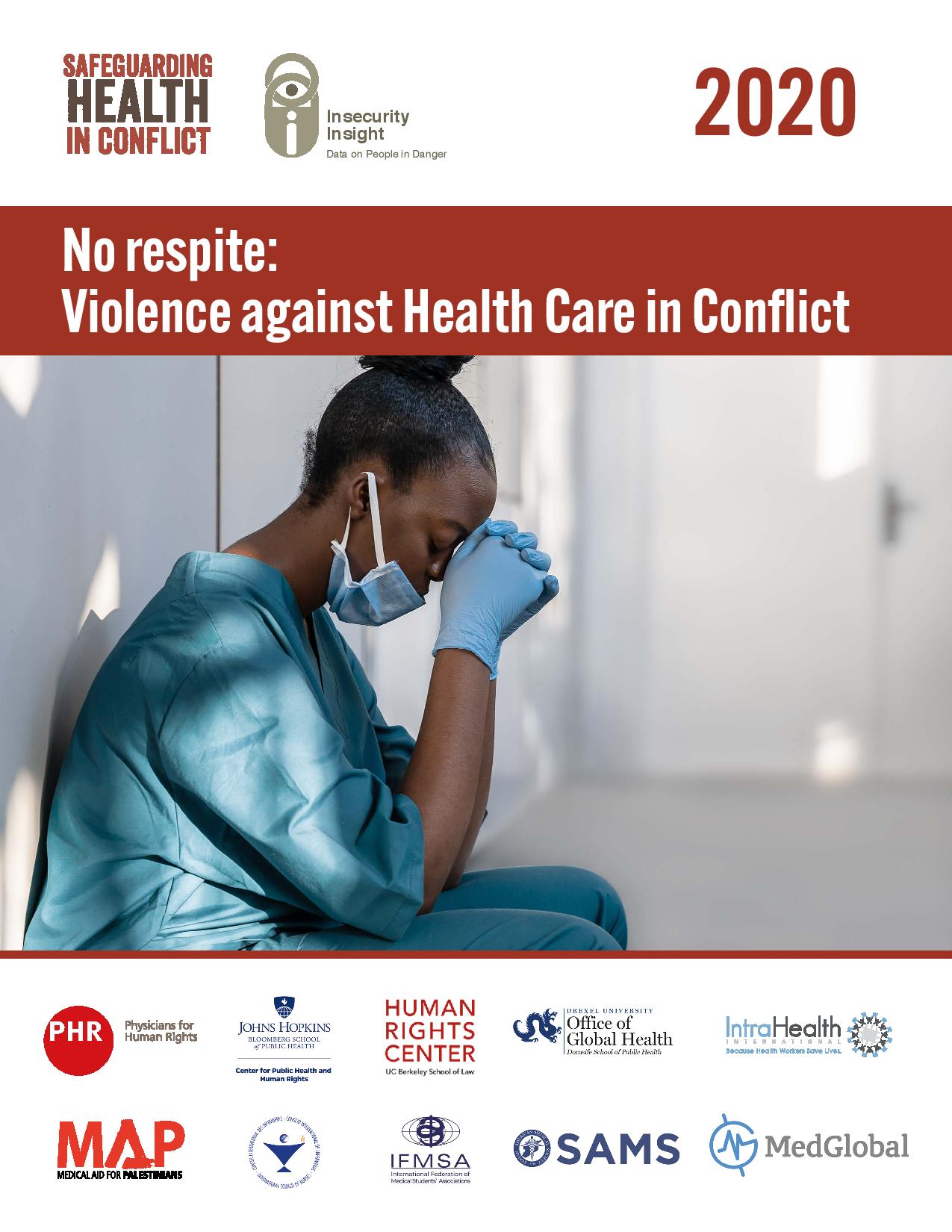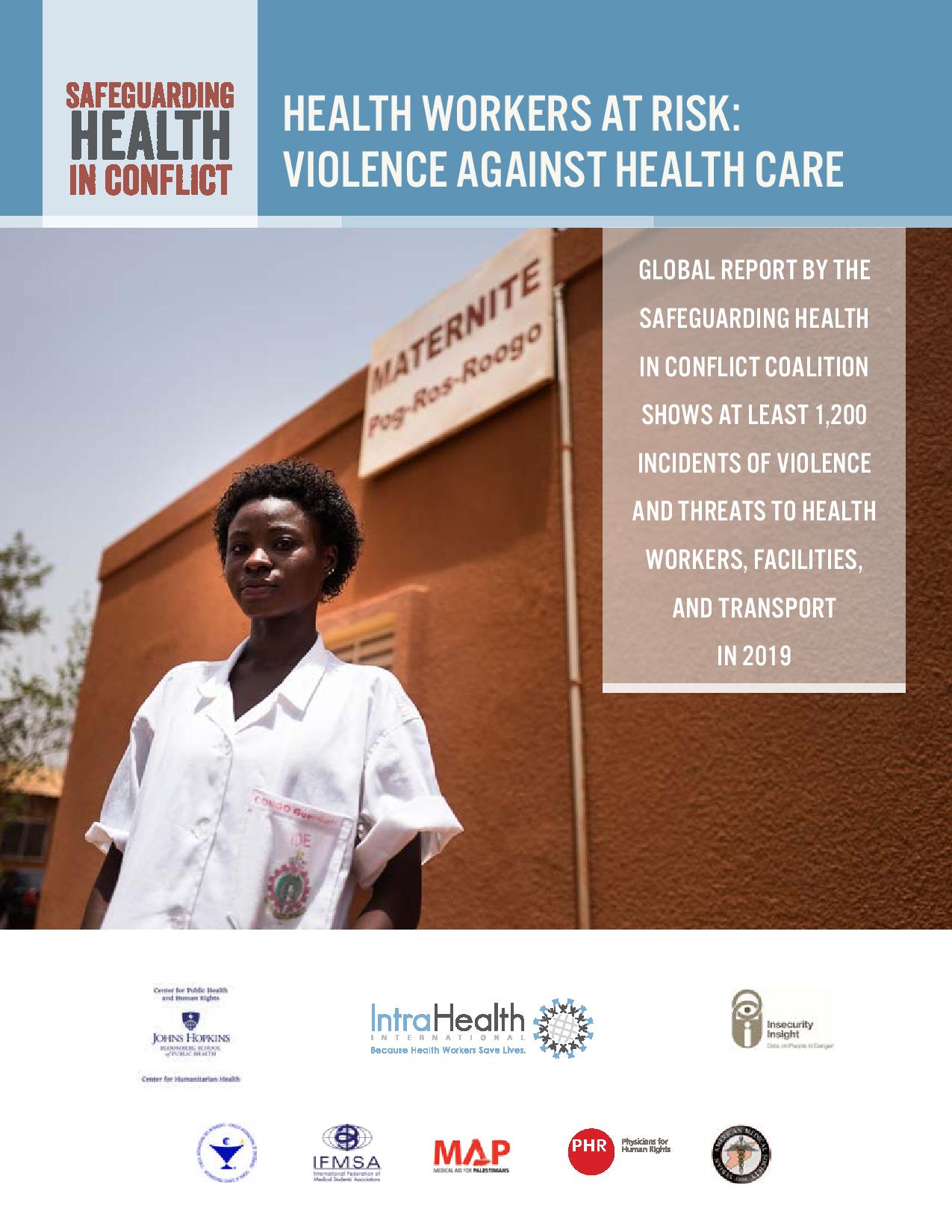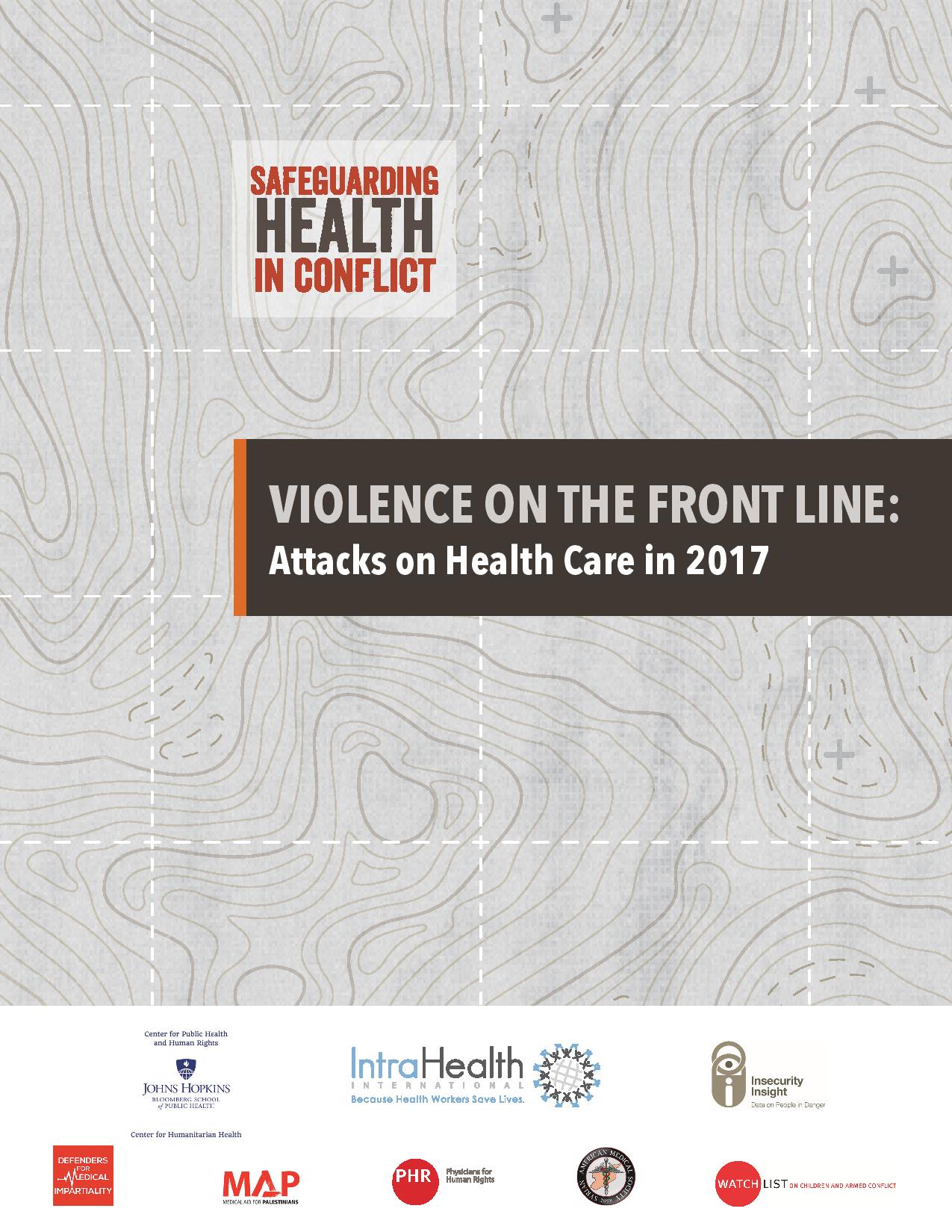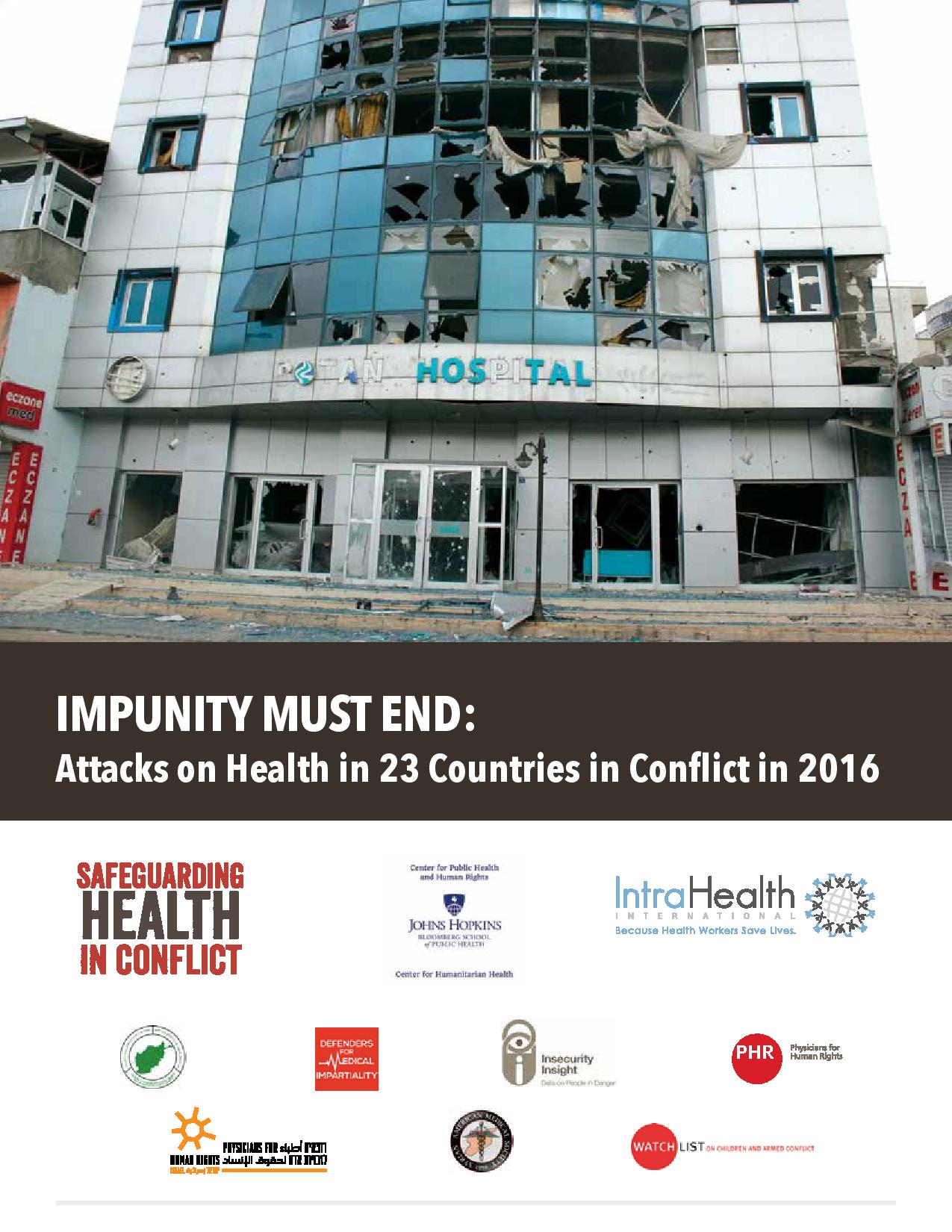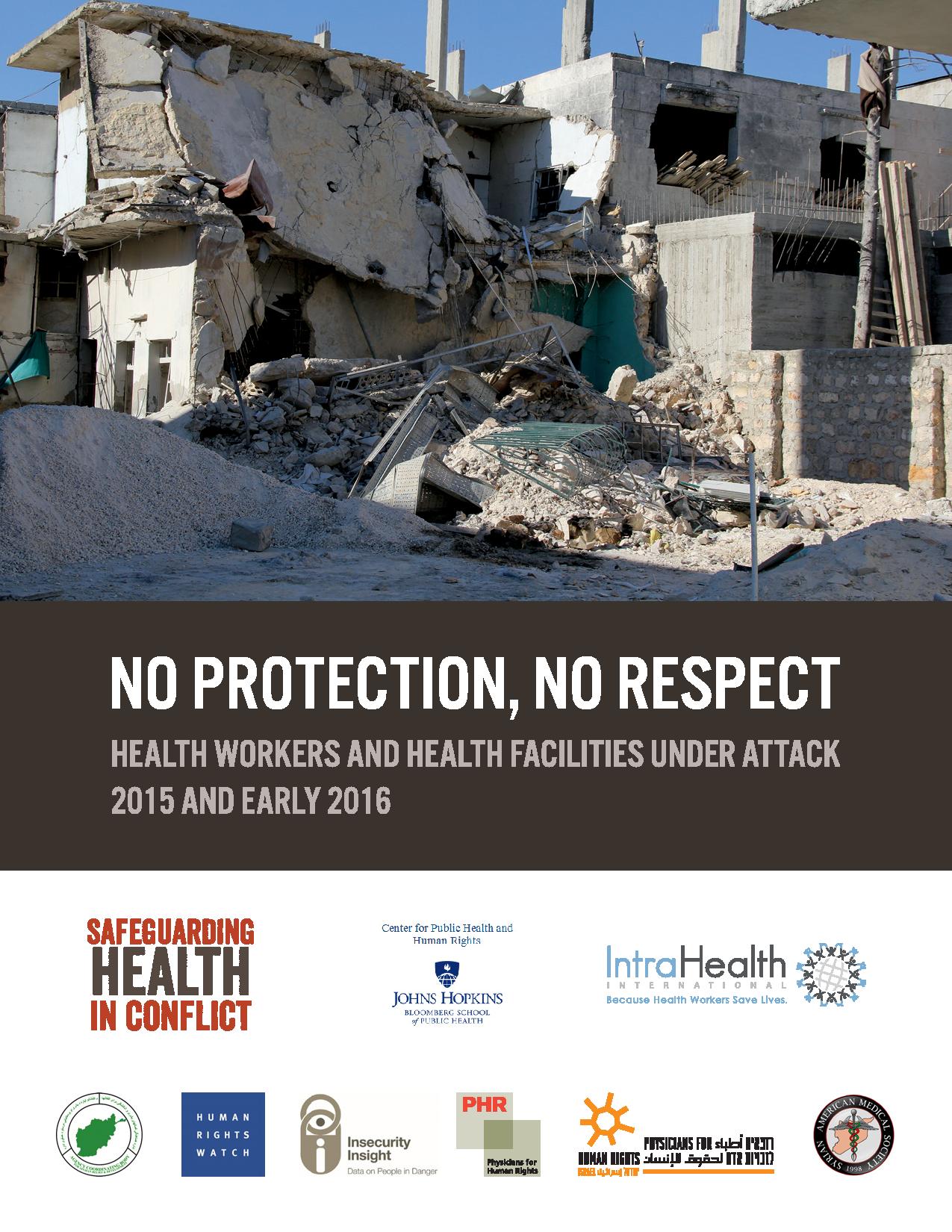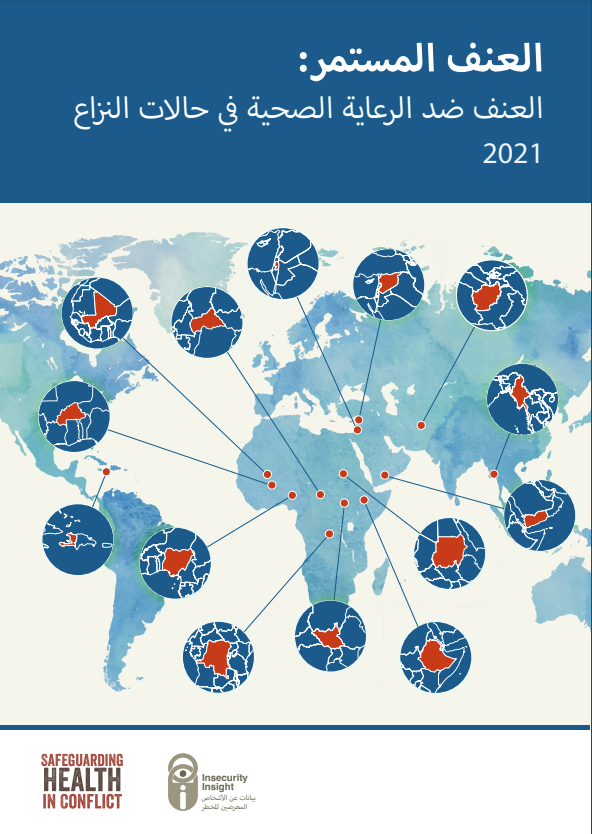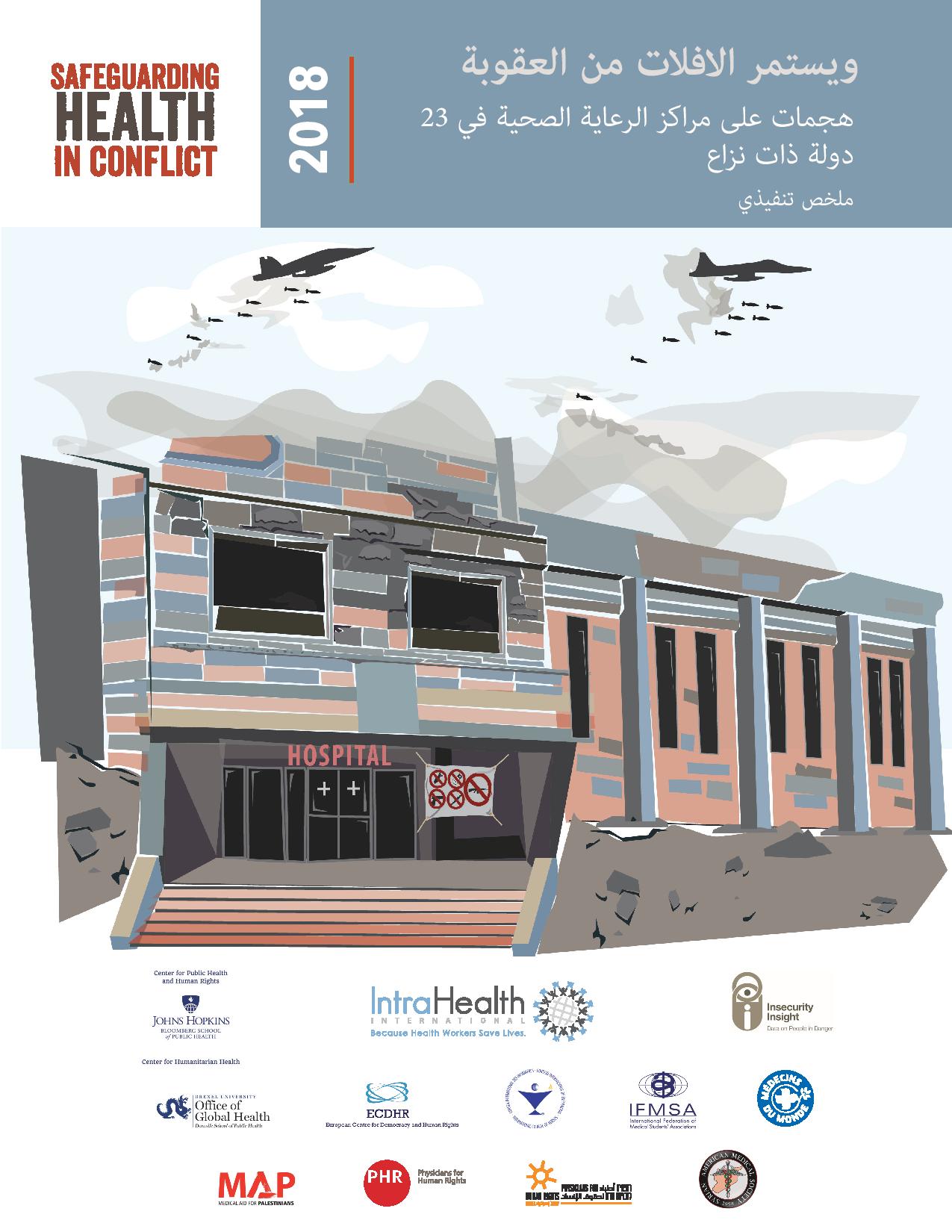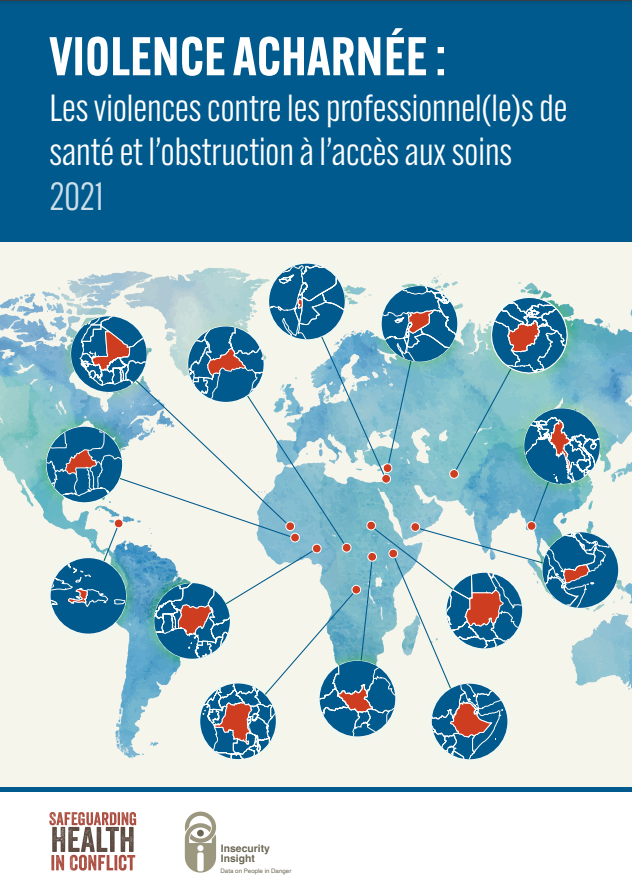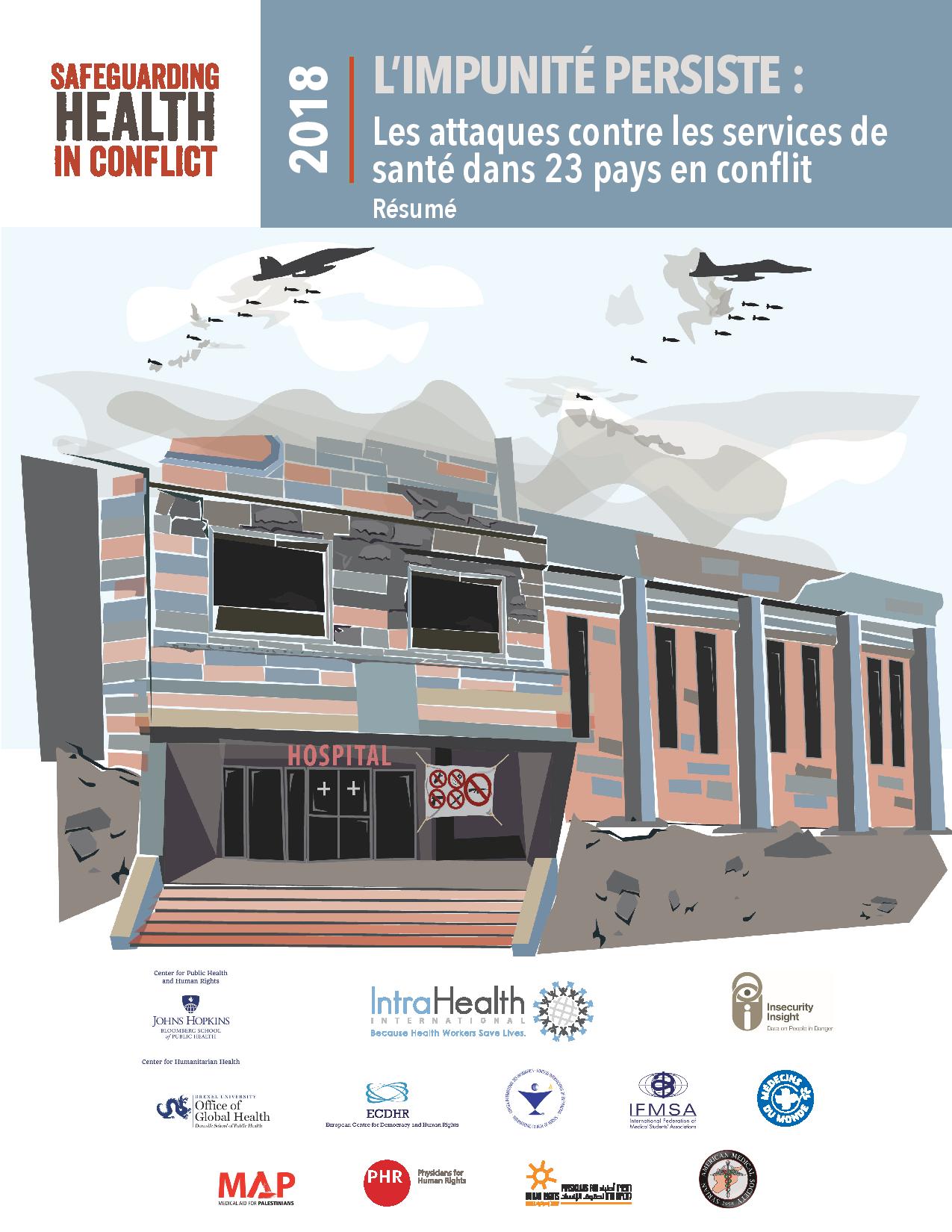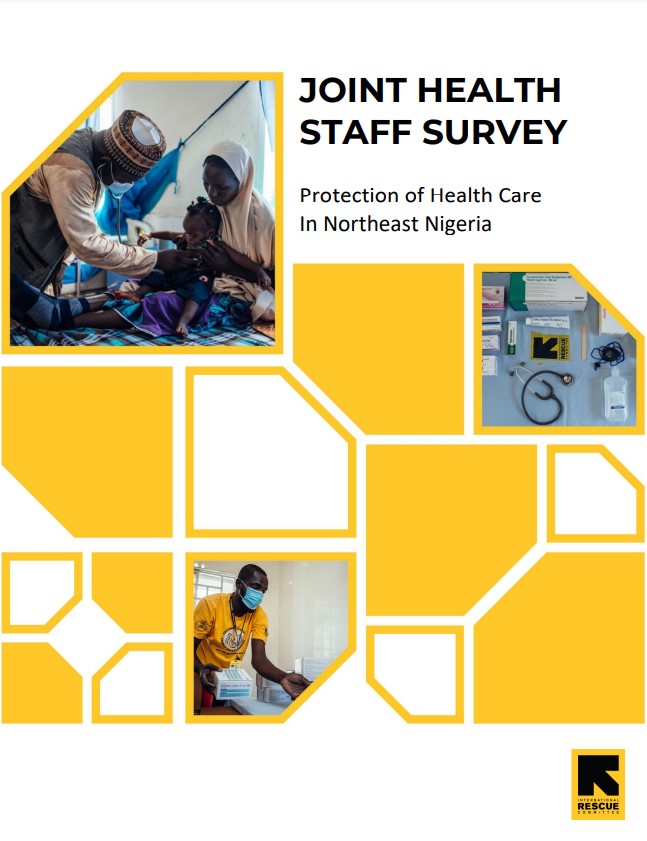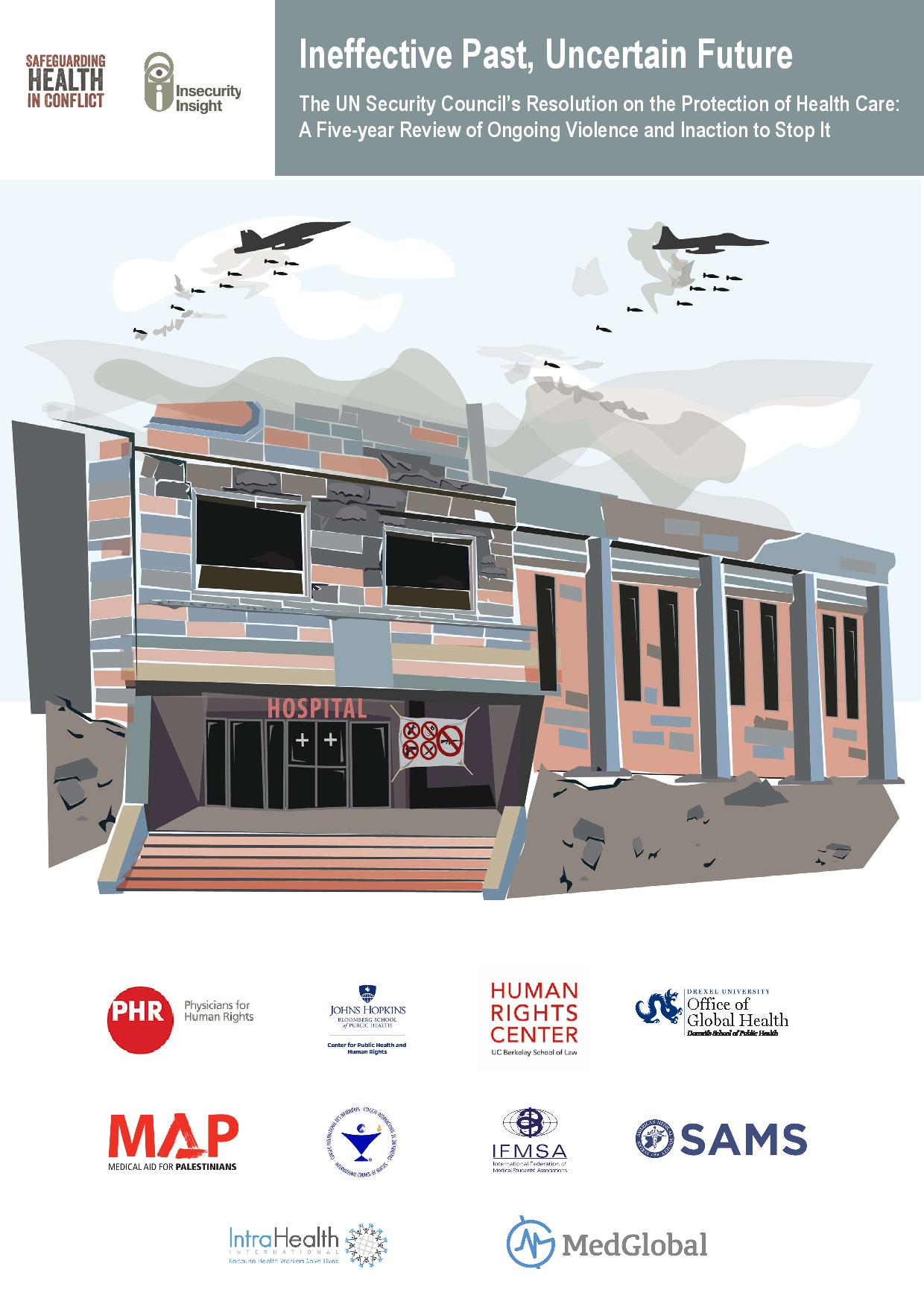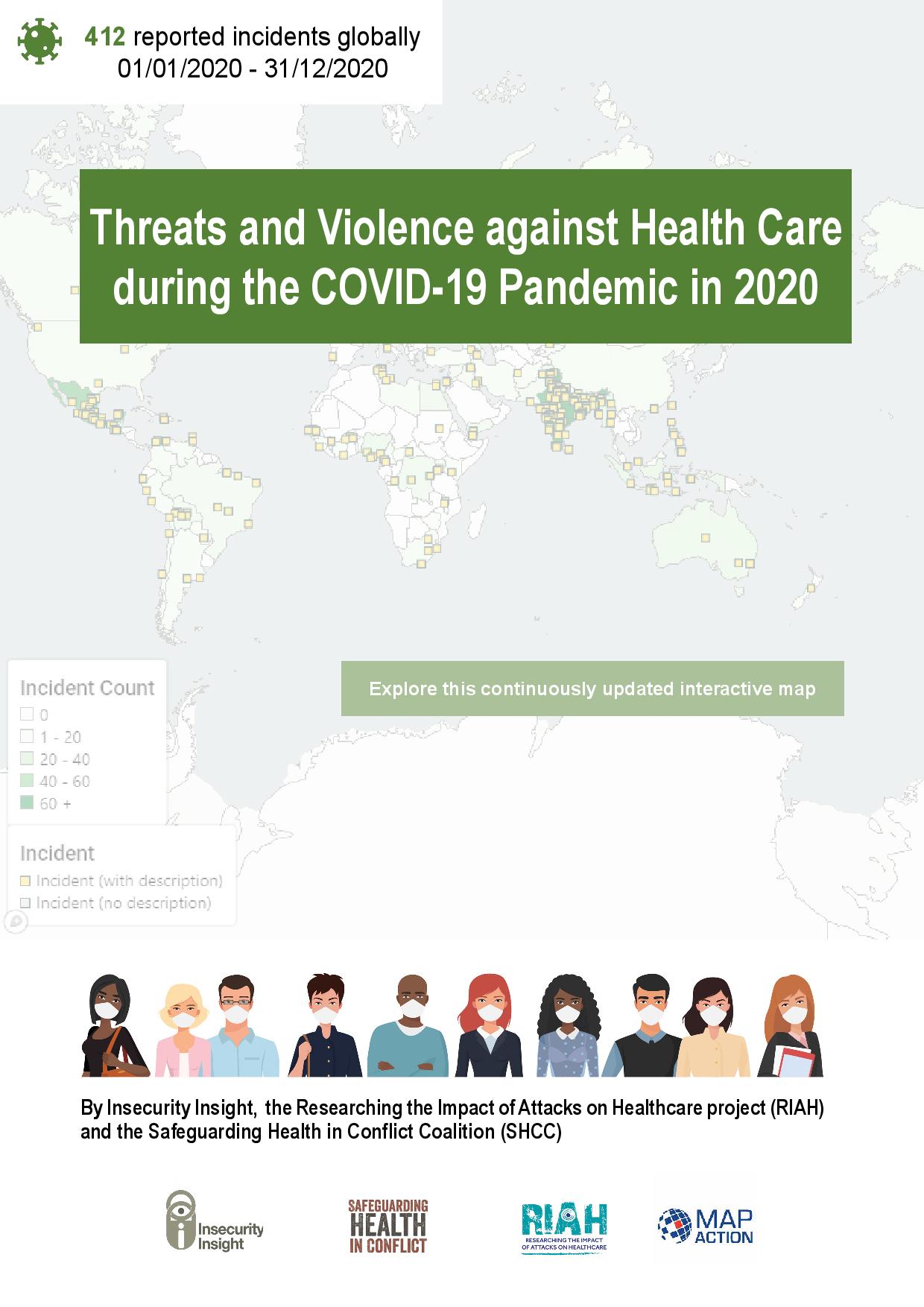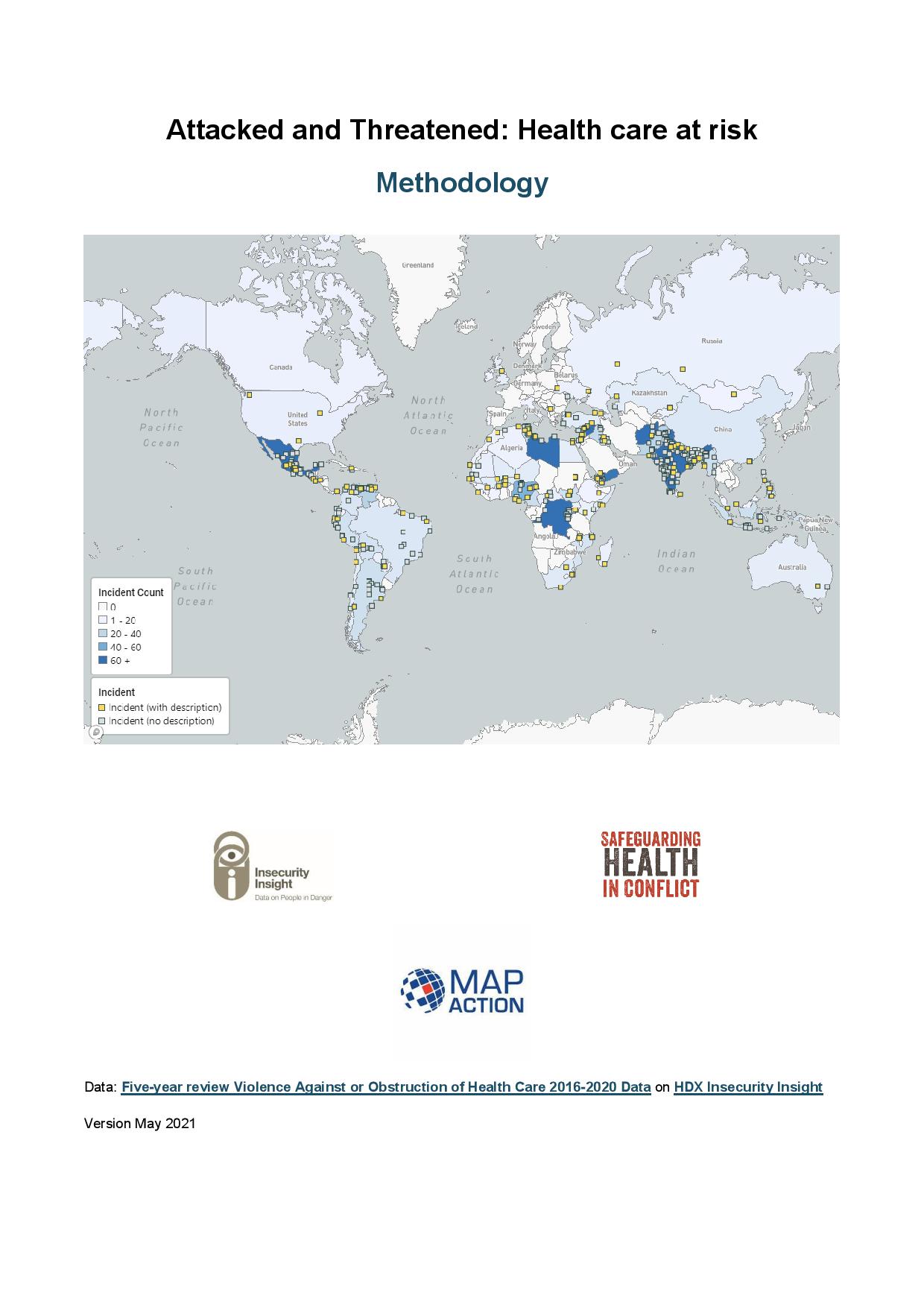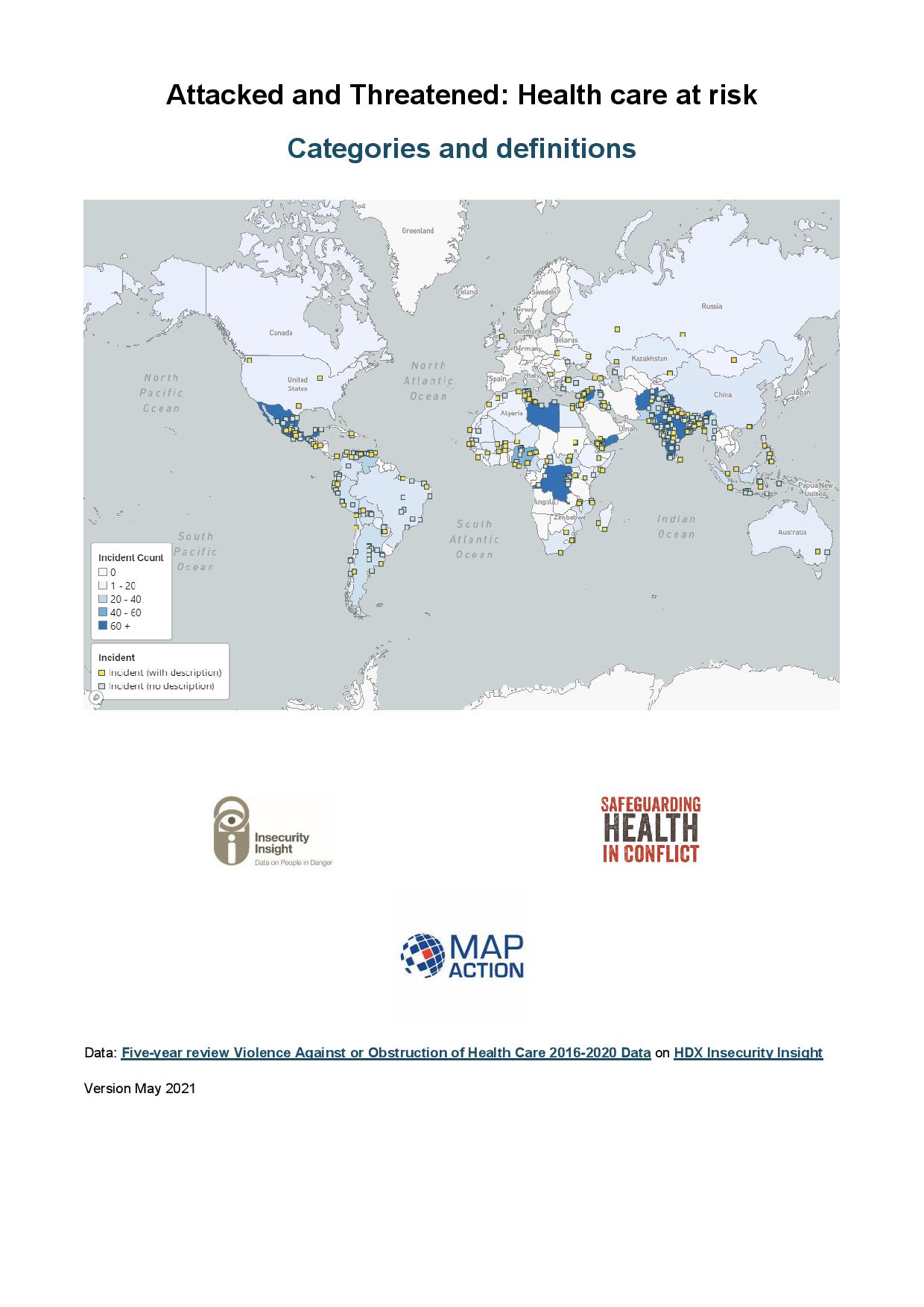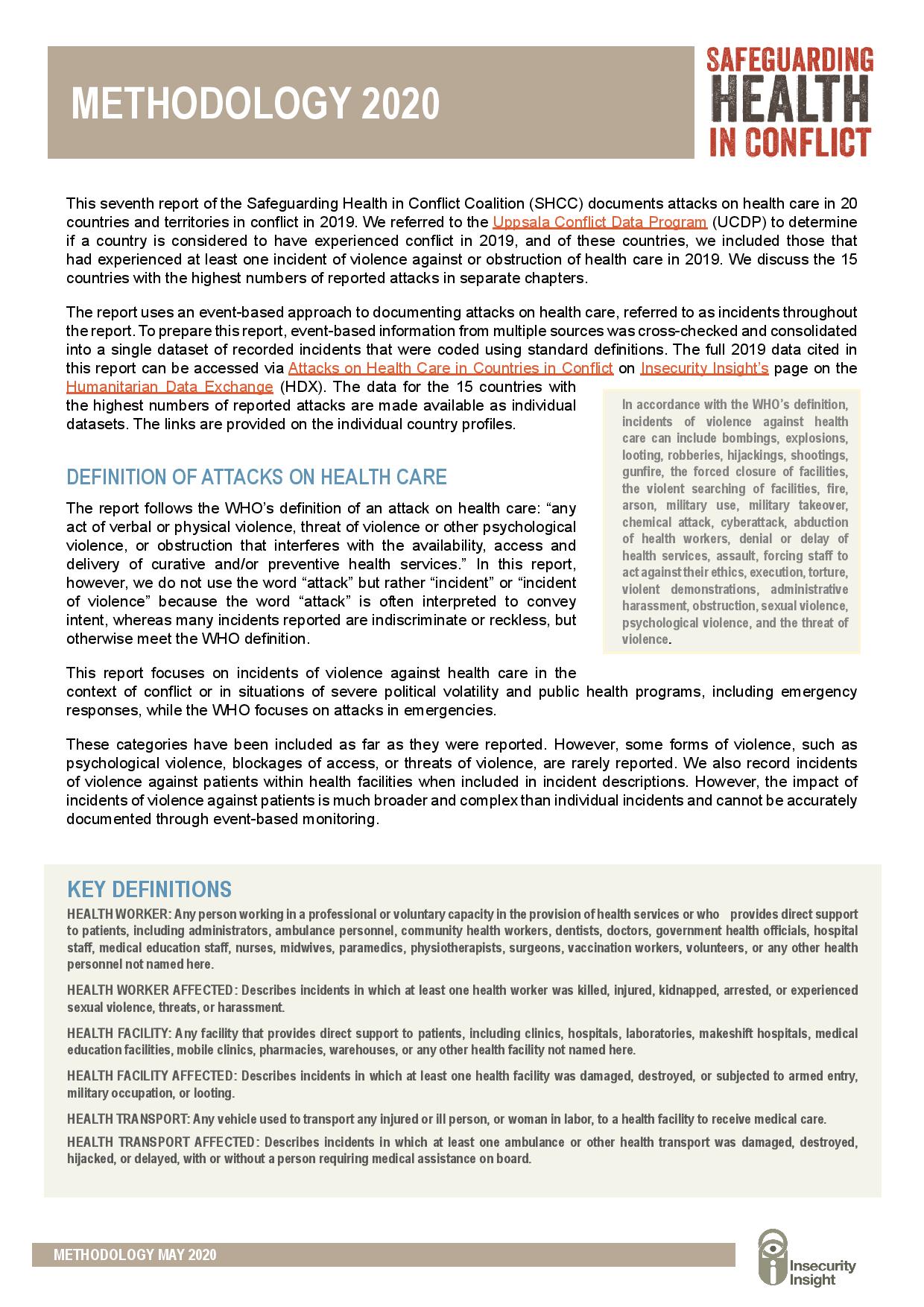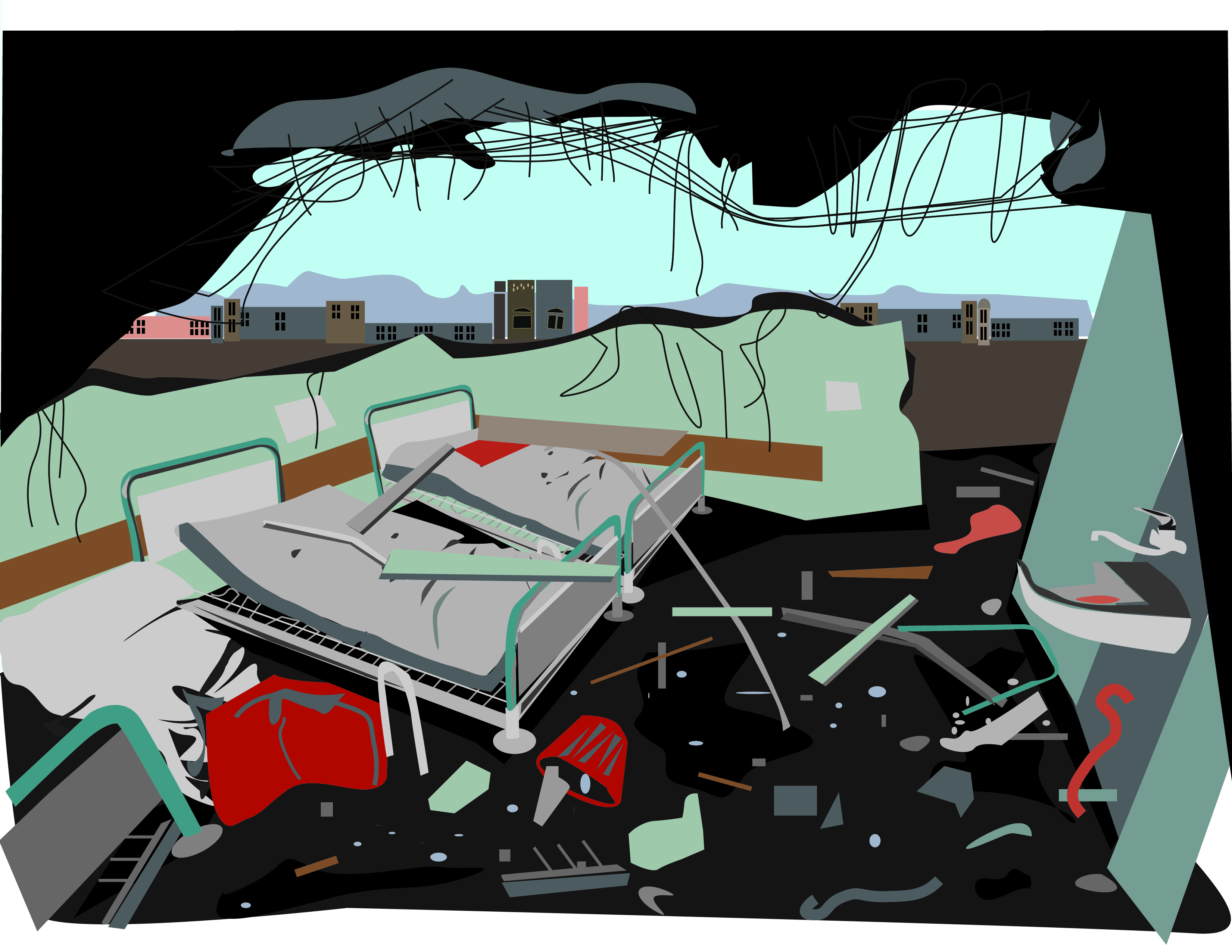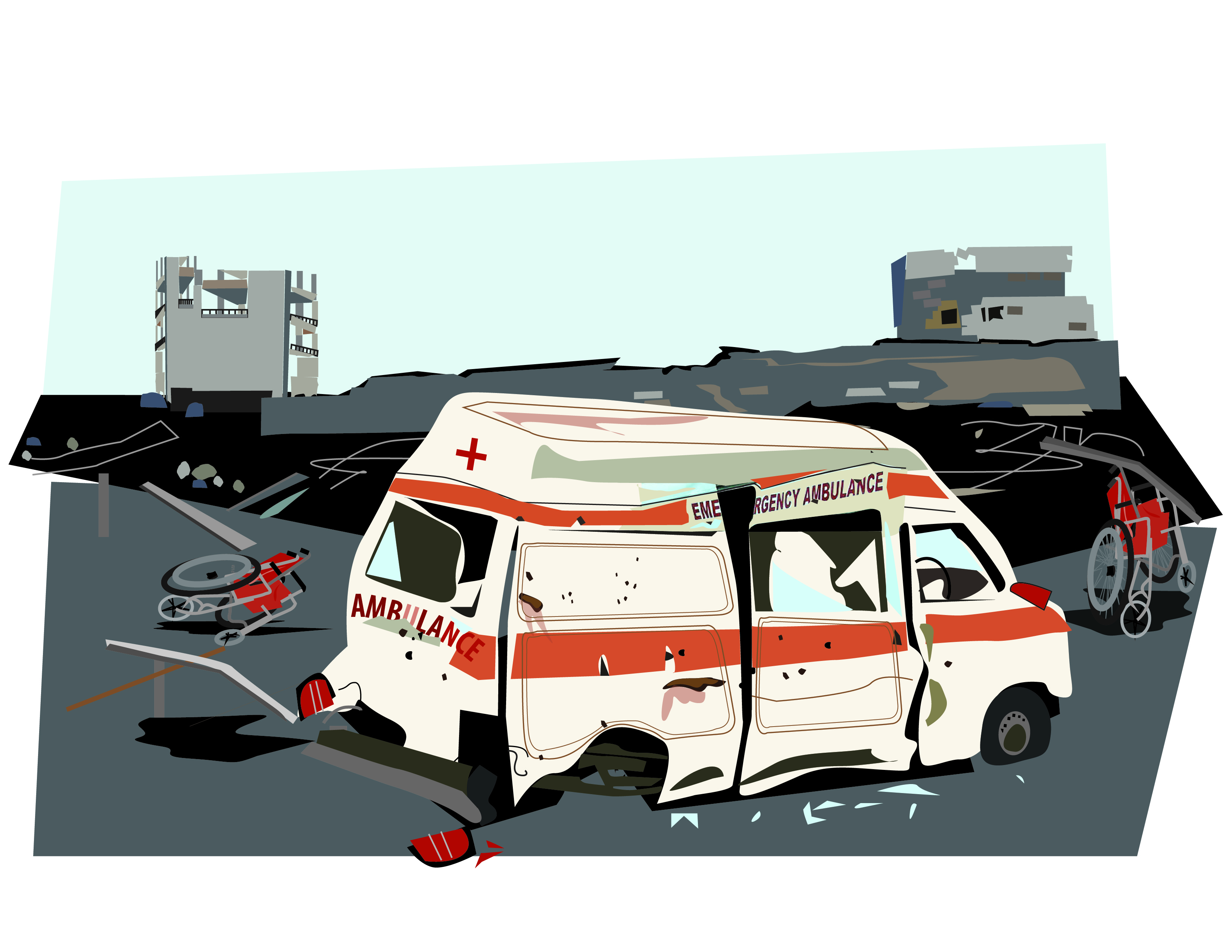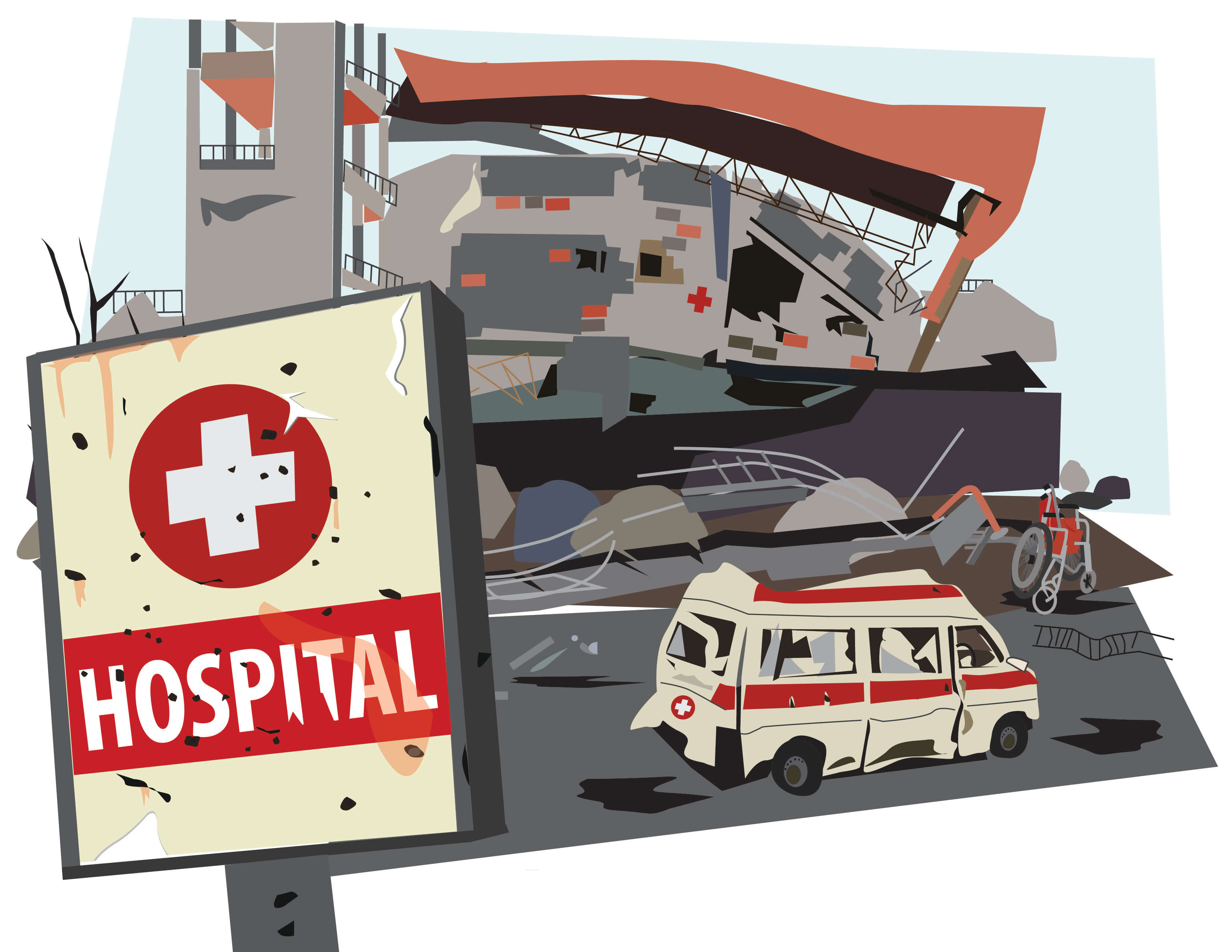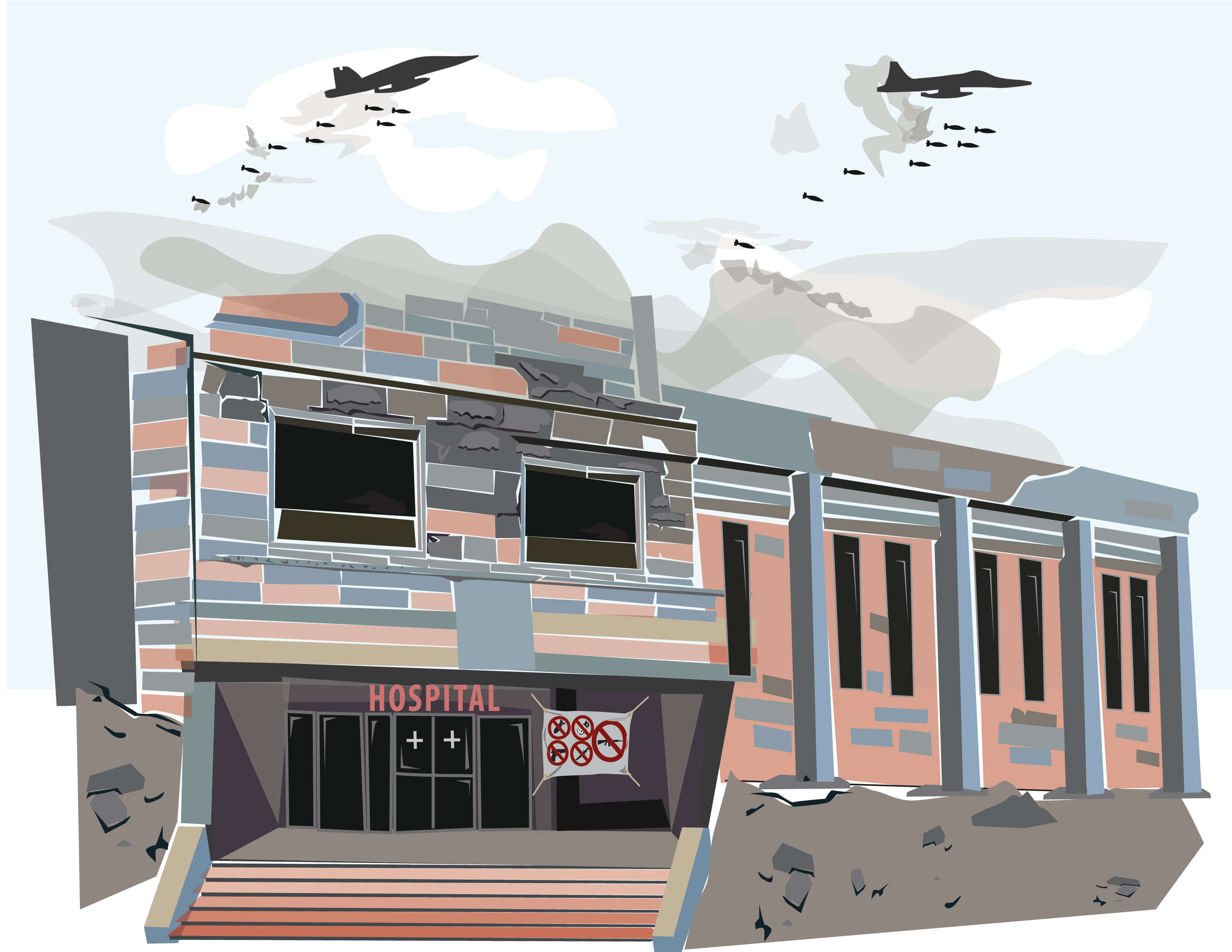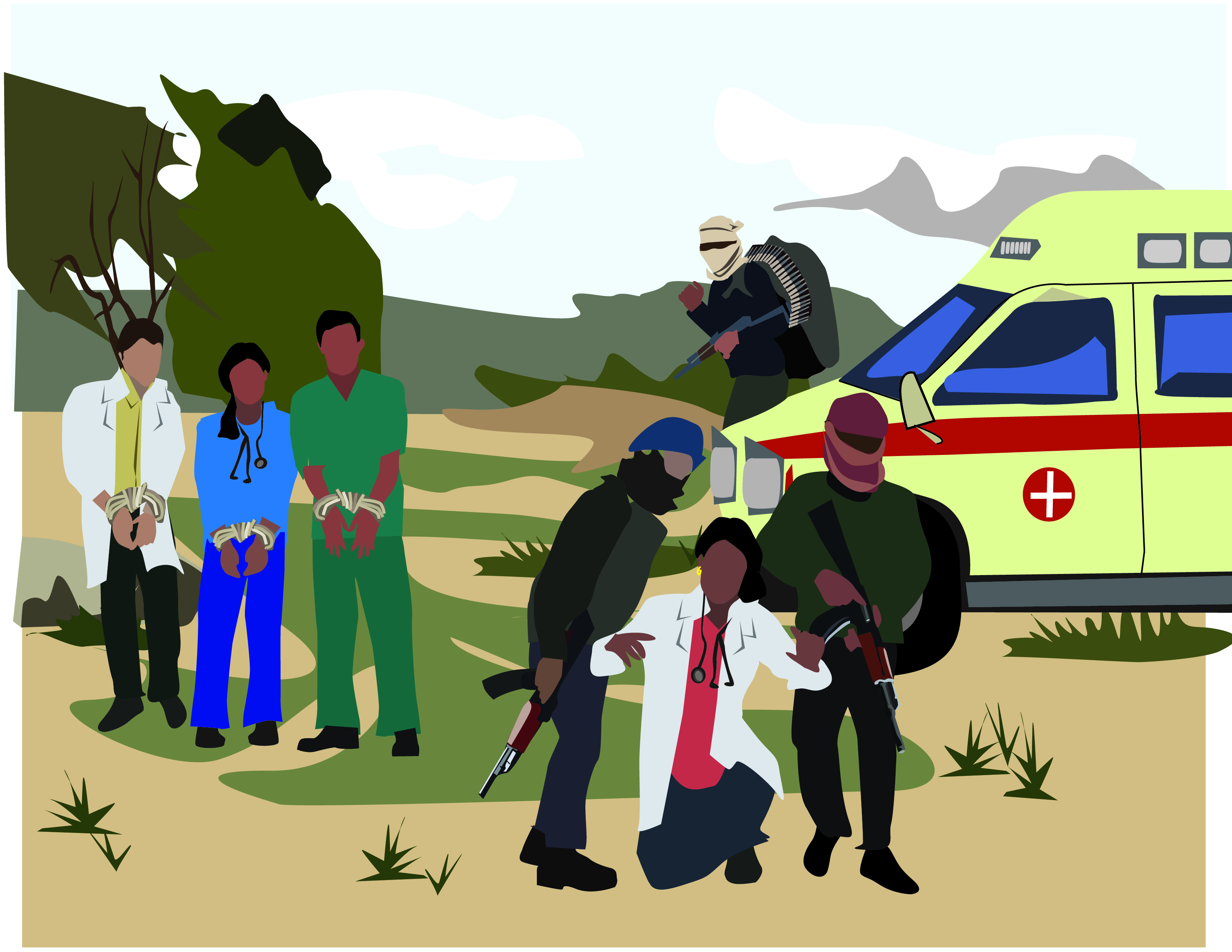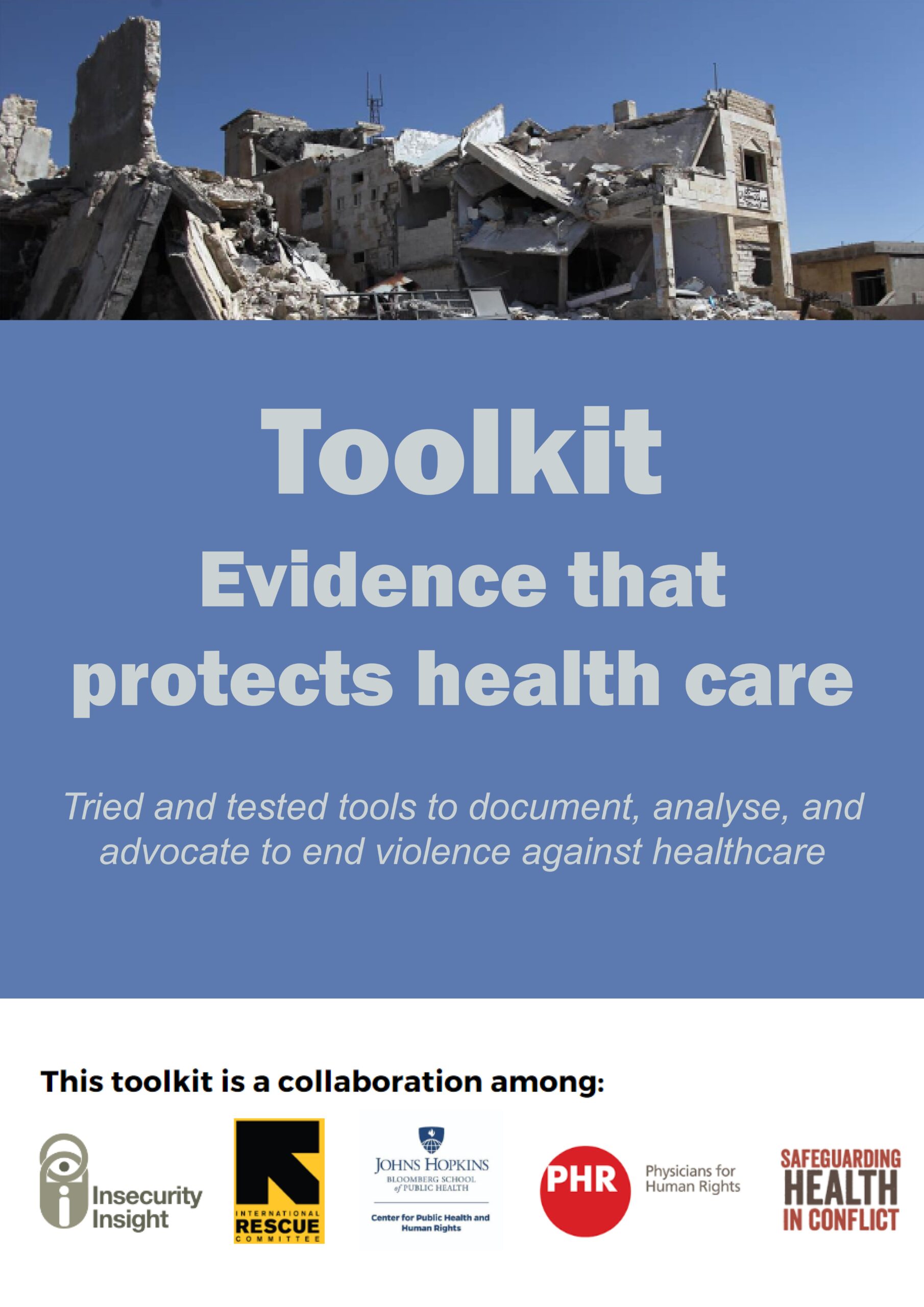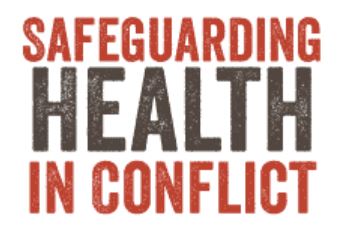The data for attacks on health workers, facilities and patients collected by Insecurity Insight for the SHCC are analysed in the Coalition’s annual report:
Ignoring Red Lines: Violence Against Health Care in Conflict
In 2022, the SHCC documented 1,989 incidents of violence against or obstruction of health care in conflicts across 32 countries and territories. Incidents increased by 45% in 2022 compared with 2021 and marked the highest annual number of incidents recorded by the Coalition since it began tracking such violence. The incidents included deliberate targeting of health facilities with explosive weapons, burning and looting hospitals, arresting and kidnapping health workers, and deliberately obstructing health care access.
Factsheets on 16 countries and territories with at least 15 incidents of violence against health care can be accessed below:
Africa: Burkina Faso; Cameroon; CAR; DRC; Mali; Nigeria; South Sudan; Sudan.
Asia: Afghanistan; Myanmar; Syria.
Europe: Ukraine.
Middle East and North Africa: Iran; occupied Palestinian territory; Pakistan; Yemen.
